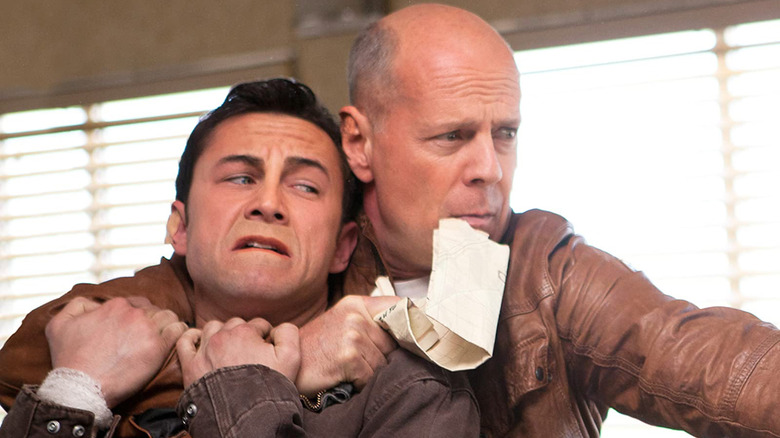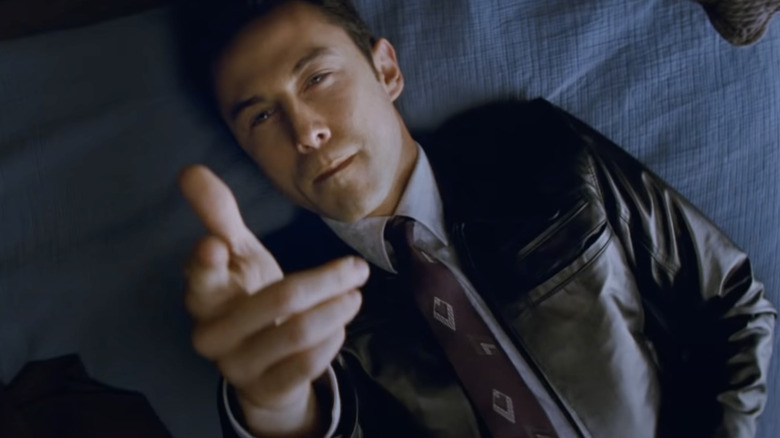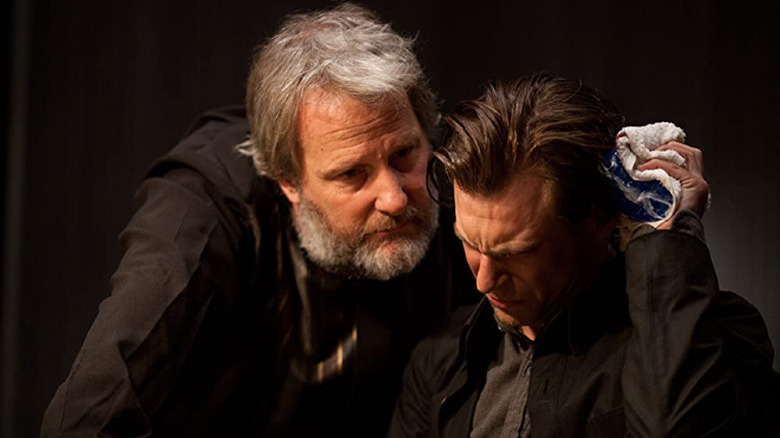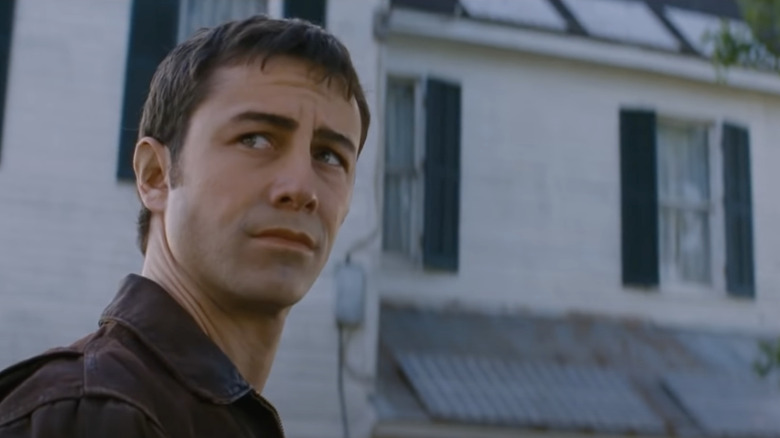James Cameron's First Terminator Film Was Rian Johnson's Blueprint While Writing Looper
This post contains spoilers for "Looper."
Time travel movies are far from simple. When you try to interweave an interesting plot with new laws of physics, confusion — or plot holes — are bound to emerge. Sometimes, ambiguities can lead to fun, silly discussions (cue the long-standing debate about why Marty's parents didn't remember they met him in high school in "Back to the Future," which actually has an official answer). That being said, it's always satisfying when a time travel film cuts any unnecessary details, instead opting to nail down the main story and time travel mechanics. There still might be a few plot holes here and there, but with a tighter story, it becomes much easier to enjoy the movie as its narrative and themes keep gathering momentum, right up until the ending lands like a clean punch.
Unfortunately, while there are definitely a few examples of clean, tightly-woven time travel movies, the complicated subject matter makes them relatively hard to find. Still, when done right, they knock it out of the park — something that Rian Johnson wanted to emulate when he wrote the script for 2012's "Looper." Rather than reinventing the wheel, the director took inspiration from James Cameron's first "Terminator" movie and ended up with a final product that, dare I say, managed to barrel towards its ending even more effectively.
'I'm gonna fix this!'
Nothing spurs creativity like fear of failure. While chatting with GQ, Rian Johnson revealed that he originally envisioned "Looper" as a voiceover-driven short film, but shelved the idea for a while. However, after "The Brothers Bloom" (which our review called "ambitious" and "magic[al]") did relatively poorly at the box office, Johnson decided to turn the sci-fi concept into a feature-length film, all while keeping in mind that his still-budding career might be over if "Looper" flopped too.
To ensure that the movie would be a success, Johnson began a long process of writing, re-writing, and ruthlessly trimming. Describing the ordeal, he told GQ:
"I rewrote that movie more than I've ever rewritten anything in my life. I really tried to hone it down, and make something that was tight, and something that was going to conceptually work. I was thinking about, you know, [James] Cameron's first 'Terminator' movie as kind of the example of something I wanna do. Or 'Witness,' Peter Weir's 'Witness.' Something that has kind of the focused shape of very determined, thought out structure, and then just sees it through to its inevitable conclusion in almost a compassionately cruel type way."
Notably, Johnson wasn't just trying to strike a satisfying balance between tightly-woven plot and believable physics. That would've been tough enough on its own, but the director also wanted to "Looper" to explore broader ideas such as the value of violence and family ties — with these themes still being tightly interwoven into the main action. It was a tall order for a two hour movie, but Johnson was up for the challenge.
'Never let your target escape.'
In order to hone in on what would eventually become the tight-paced, succinct final cut of "Looper," Rian Johnson had to explicitly figure out the themes and concepts he wanted to explore, along with the mechanics of time travel. This was no small task.
Speaking to The Hollywood Reporter in 2012, the director revealed that it was difficult to keep the film's time travel mechanics "simple," and that he had to carefully consider "how much to explain." Now, Johnson didn't strike a perfect balance; he left out a few explanations to avoid redundancy, some of which would spark intense debates online (prompting Johnson to clear a few things up in later interviews). However, the mechanics were relatively believable, allowing viewers to focus on the film's story instead.
Since Johnson wanted "Looper" to pack a punch, he also had to give the movie some emotional weight. Powerful themes would be essential, and the director sure wove a lot of them into the movie. As he told GQ:
"... There's a lot of stuff in there about fathers and sons, there's a lot of stuff in there about the idea of violence, the idea of retribution, the idea of its actual utility as a problem-solving tool."
Likewise, the director told NPR in 2012 that he spent a lot of time thinking about whether the threat of future violence could be used to justify murder, or whether it would lead to a "self-perpetuating loop" — a tough question that he saw reflected in the real world, and as such, one that had to be handled with the utmost care. Given how ambitious the material was, the "Looper" script required a lot of revision to get to a point where it covered all of its bases (plot, theme, and physics) without veering off-course.
'Legend is, he did it alone.'
Ultimately, Rian Johnson's hard work was well worth it. When you're watching a time travel movie, it's hard to get the idea of a loop out of your mind. Either you're already aware of the ending or there'll be a butterfly effect that changes the entire world (potentially destroying happy futures in the process). "Looper," in particular, emphasizes the importance of "closing" such loops, culminating in an ending that flips the thematic question of using violence to prevent future violence on its head. It's both surprising and incredibly satisfying.
In one fell swoop, Johnson resolves every single issue in the final minutes of "Looper," whether plot or theme-related: Cid grows up with a mother, Joe breaks the loop and redeems himself, and his future wife is presumably left to lead a long, fulfilling life without the risk of being murdered. Violence is endorsed as a way to prevent future pain, but only when it is tempered with self-sacrifice — an idea that ties into the movie's thematic emphasis on family.
"Terminator" may have been Johnson's model for a tightly-woven sci-fi flick (and to be clear, it's a very fun, impressive movie!), but its tense, action-heavy ending lessens its impact. In contrast, the fact that "Looper" manages to pack such a satisfying conclusion into a single moment makes its finale vastly more powerful.



